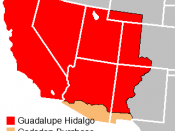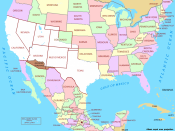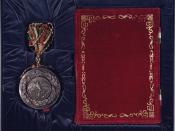The Mexican War (1846-1848) was the result of many factors, not the least of which was westward expansion. Expansionists became interested in the area above the Mexican borderlands, Texas, as well as New Mexico, California and Oregon. By 1835 there were 20, 000 settlers in Texas, many of which were plantation owners who had moved in with their slaves. Texans declared their independence in 1836 and applied for annexation, but President Jackson did not recognize their independence until 1837, just before he left office. Martin van Buren, Jackson's successor, also avoided the issue of slavery. The antislavery Northerners opposed the annexation of Texas because the territory was large enough to be divided into five separate slave states. Southerners were also sceptical of annexation because they rightly felt that it would lead to sectional conflict. The Election of 1844 proved critical to the fate of the territories. Both Henry Clay and van Buren tried again to avoid the matter of Texas for fear of war with Mexico.
Clay won the nomination for the Whigs, but a man named James Polk, an eager expansionist, won for the Democrats and ultimately was elected President. In March 1845, just before President Tyler left office, he signed the joint resolution accepting Texas to the union as a single state, which Texas accepted in July and which was finalized in December. President Polk entered office only to be greeted by border disputes with Mexico as well as the growing interest of expansionists in California. In May 1846, Polk asked Congress to declare war on Mexico after an attempt by Slidell to acquire New Mexico and California had failed. During the war a representative from Pennsylvania, David Wilmot, proposed the Wilmot Proviso, an amendment which stated that slavery was to be prohibited in all territories acquired...


